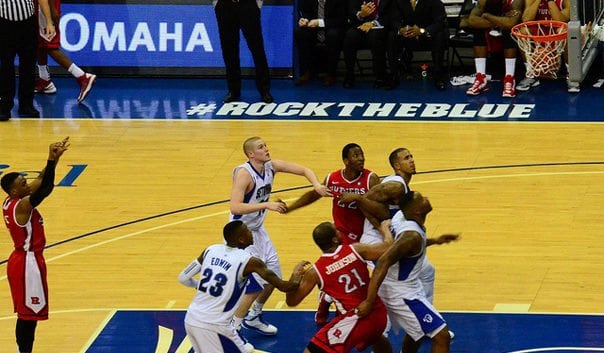- leadership
- Blog post
That Rutgers coach, progressive discipline, and red faces
Opinions about the firing of the Rutgers basketball coach are like, well, you know what they’re like. Everybody has one.
So I pondered for several days whether my humble opinion could add anything to the debate, especially on the HR aspects of the case, which I’m supposed to know something about.
And here’s what I’ve finally come up with:
Progressive discipline is a great thing. It can save employees whose jobs are at risk, or provide managers with precious support and documentation for those terminations that turn out to be necessary. But progressive discipline doesn’t always work, especially when there’s a potential for embarrassment for the employer.
What the school did
Although university officials didn’t use the term “progressive discipline” to describe what they did about now ex-coach Mike Rice when his transgressions first came to light last year, that is clearly the path they took.
Rice was suspended for three games, ordered to attend anger management counseling, and slapped with a $75,000 penalty in fines and lost salary — not an inconsiderable sum, even for a member of the well-paid college basketball fraternity. And he was told that any more bad behavior — like the grabbing, shoving and attempted basketball-beaning of players documented on that video we all saw — and hasta la vista, baby.
The disciplinary measures were reviewed and passed by Rutgers’s HR people and the university’s attorneys. And that, in most disciplinary cases in most organizations, would have been that. Except in this case, there was that video, and college basketball was top of the national mind because of the NCAA tournament, and Rutgers is a public institution, and the governor — who may or may not have presidential ambitions — got involved. And suddenly, what had seemed like reasonable discipline six months ago behind closed university doors didn’t look so reasonable in the open, harsh light of ESPN. And Mike Rice had to go.
So what can HR people whose organizations do not specialize in highly visible athletic entertainment take away from this sorry spectacle?
It’s all public
Perhaps this: In the highly mediatized age in which we live, few of us can afford to look at disciplining employees as a purely internal matter. And as much as this thought might go against the grain, you can’t afford not to think it: Would I still opt for progressive discipline, instead of immediate termination, if what this employee has done were splashed across the front page of a newspaper, or spread around the world on YouTube?
In other words, our natural human desire to give people a second chance can, these days, run up against the kind of semi-informed mob judgments that get made when media — especially social media, so pervasive and easy to access — become involved. These judgments can be embarrassing for an organization.
So it comes down to a question: Do you have to sacrifice an employee who has erred but who might still be salvageable because people outside your walls are pointing fingers at you, or you’re afraid they will? Perhaps you’ll answer in the negative, and feel that you can and should defend your disciplinary decision against all comers. But perhaps, in some cases, you’ll feel you must take into account the possible embarrassment factor in deciding whether to impose progressive discipline, or terminate immediately.
Don’t get me wrong; I’m not arguing for across-the-board zero tolerance. I am saying that the scrutiny of a disciplinary decision you make may be broader and more public than you think.
Photo Credit: slgckgc

Get a demo of all our training features
Connect with an expert for a one-on-one demonstration of how BTS Total Access can help develop your team.



